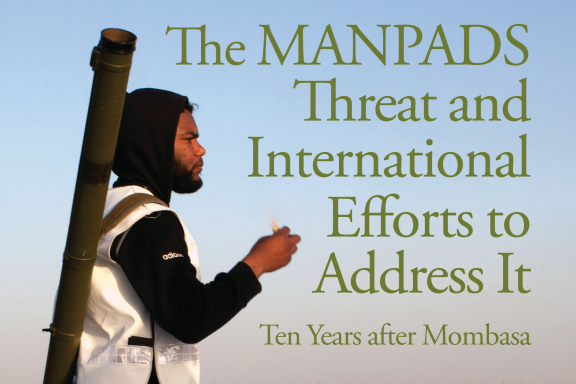
Report Examines MANPADS Threat and International Efforts to Address It
On November 28, 2002, terrorists fired two Soviet-designed SA-7 man-portable air defense systems (MANPADS) at an Israeli plane destined for Tel Aviv as it departed from Moi International Airport in Mombasa, Kenya. The missiles missed their target but the incident was a wake-up call for governments around the world. Shortly after the attack, the United States created an inter-agency task force to counter the threat posed by MANPADS, with other countries following suit. These countries launched several initiatives aimed at securing and destroying surplus, obsolete and poorly secured stockpiles of missiles; strengthening controls on international transfers of MANPADS; and improving information sharing on the international trade in these weapons. But are these efforts enough?
In the report, “The MANPADS Threat and International Efforts To Address It”, Matt Schroeder, Director of the Arms Sales Monitoring Project, assesses the terrorist threat from MANPADS, evaluates efforts by the international community to curb this threat, and proposes additional measures that governments can take to further reduce the illicit proliferation and use of MANPADS.
The Federation of American Scientists would like to thank the following individuals and institutions for their invaluable contributions to this report: James Bevan, Jeremy Binnie, Peter Courtney-Green, Gene Crofts, Alan Flint, Andy Gleeson, Jose Manuel Heredia Gonzalez, Paul Holtom, J. Christian Kessler, Stephanie Koorey, Jonah Leff, Cheryl Levy, Maxim Pyadushkin, Steve Priestley, Saferworld, Small Arms Survey and officials from the Organization of American States, the Organization for Security and Co-operation in Europe, the United Nations Regional Centre for Peace, Disarmament and Development in Latin America and the Caribbean and the Wassenaar Arrangement , along with officials from numerous governments. Without their talent and support, this study would not have been possible.
The last remaining agreement limiting U.S. and Russian nuclear weapons has now expired. For the first time since 1972, there is no treaty-bound cap on strategic nuclear weapons.
The Pentagon’s new report provides additional context and useful perspectives on events in China that took place over the past year.
Successful NC3 modernization must do more than update hardware and software: it must integrate emerging technologies in ways that enhance resilience, ensure meaningful human control, and preserve strategic stability.
The FY2026 National Defense Authorization Act (NDAA) paints a picture of a Congress that is working to both protect and accelerate nuclear modernization programs while simultaneously lacking trust in the Pentagon and the Department of Energy to execute them.